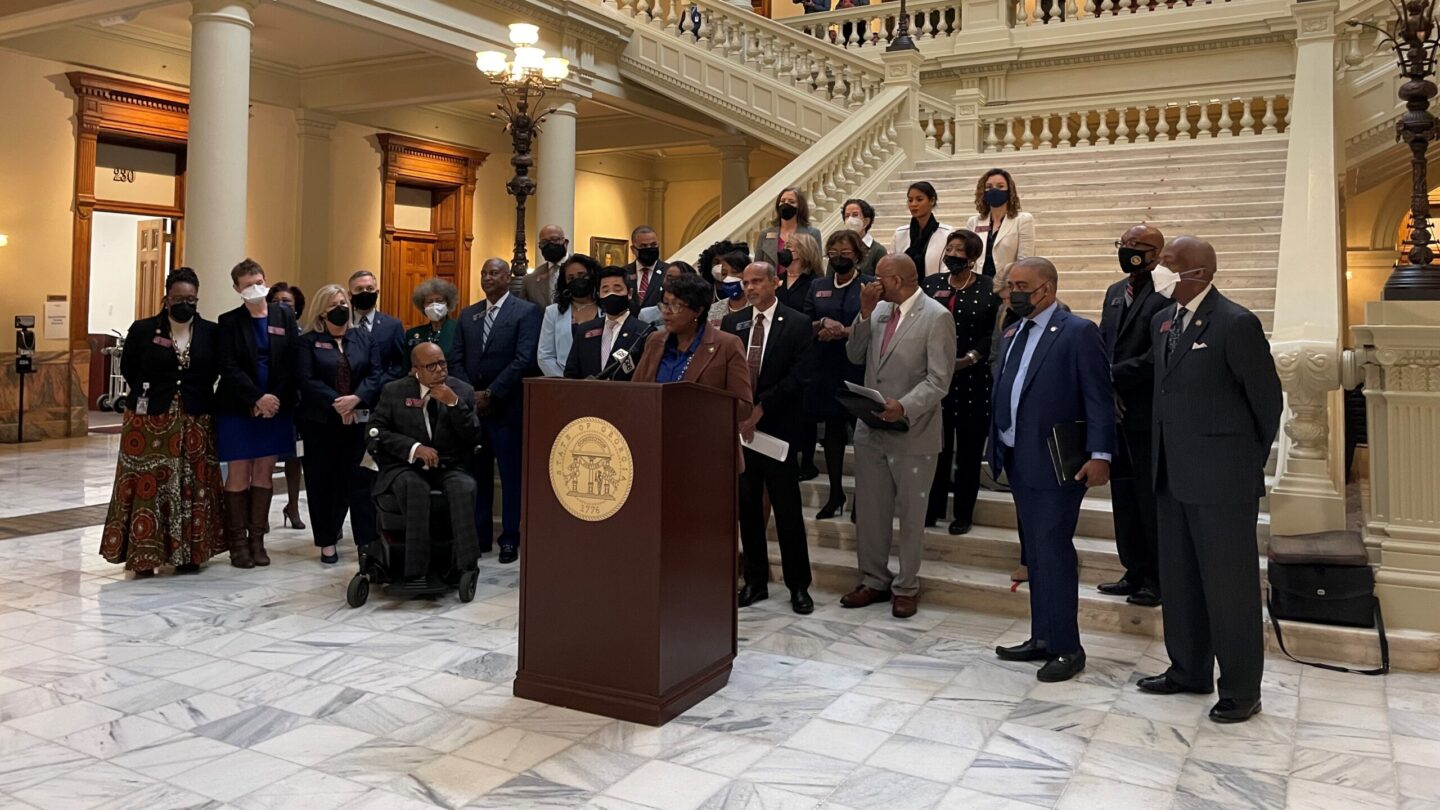In 2018, Marlene Fosque made history. Voters elected her the first Black person to serve on the Gwinnett County Commission in its 200-year history.
Two years later, Gwinnett County voters turned the entire county commission Democratic.
For the first time, all the commissioners were people of color.
“Gwinnett County is the most diverse county in the state of Georgia and the Southeastern United States,” Fosque says. “So what it says is the people have changed. Change is not already coming for it, it’s already here.”
So it was a surprise to Fosque when Republicans in the Georgia legislature scrapped the redistricting map drawn by county officials and swapped it with their own map.
Typically, local officials draw local maps after the census and then the legislature rubber stamps them. In this new Republican map, the territory Fosque represents was redrawn. It now includes the northern part of the county that’s whiter and friendlier to Republicans, packing more voters of color into the other districts.
State Rep. Sam Park helped lead Democrats’ efforts to stop that map.
“It really dilutes the political power of Gwinnett voters of Black, Hispanic and Asian American communities, and it undermines their freedom to ultimately vote for their elected officials of choice,” Park says.
At Paris Baguette, a Korean bakery near Park’s Gwinnett district where you can get sesame tapioca bread and passion fruit mochi donuts, Park says Gwinnett County has kept growing and diversifying.
When Park unseated a Republican for his statehouse seat in 2016, he became the first Asian American Democrat elected to Georgia’s legislature.
For years, Gwinnett sent mostly Republicans to the state legislature. By 2018, the majority of Gwinnett lawmakers were Democrats. Park says that’s why the Republican-controlled legislature is stepping in.
“It is, when all is said and done, driven by a lot of fear harbored by folks who maybe are concerned that the changing demographics of Gwinnett is now being reflected in elected officials at the state and local level,” Park says.
Republicans say that’s not true.
State Rep. Bonnie Rich is one of the last Gwinnett County Republicans in the legislature. She says the county map drawn by GOP lawmakers is more fair and ensures voters in rural stretches of the county are represented in their local government.
“My constituents come to me and they tell me they have no voice and no seat at the table,” Rich said at the only legislative hearing on the Republican-drawn maps.
Rich and other Republicans are emphatic — this has nothing to do with race. Gwinnett County resident Michelle Frost spoke at a hearing, supporting the Republican map.
“I feel like I live in an area that is the Crayola box of crayons, the 64 colors, and that’s the life I prefer,” Frost says. “It’s not a conservative-liberal thing. It’s a people thing. So we should really look out for the people and everybody should have a voice.”
Republican House Speaker David Ralston has been frank. He says elections have consequences. The legislature is controlled by Republicans, and the legislature has the final say on redistricting maps.
Still, the Voting Rights Act forbids drawing districts that dilute the voting power of minorities.
“Untangling race and politics is one of the hardest things courts get asked to do, and it’s particularly hard in the south where race and politics overlap to a very large degree,” says Michael Li, a redistricting expert at the Brennan Center for Justice.
Li says Gwinnett County is a microcosm for how Georgia and other parts of the country are navigating changes in demographics and political power.
“Some of the biggest battles around redistricting this cycle are going to be in the rapidly changing suburbs of the country, particularly the suburbs of the South,” Li says. “Where both the politics of the suburbs have changed, but also the suburbs have gotten more diverse.”
Gov. Brian Kemp ultimately signed the Gwinnett County maps redrawn by Republican lawmakers. Litigation is possible, but elections are coming up.
Gwinnett Democrat Marlene Fosque acknowledges the only way forward now will be to run in her newly-drawn commission district.
“Commissioners, we are the key connectors to resources and access, to things like zoning that impacts your neighborhood, so this is huge,” she says.
Fosque says it’s important Gwinnett voters see themselves reflected on the county commission, so she’s going to keep fighting to keep her seat at the table.








